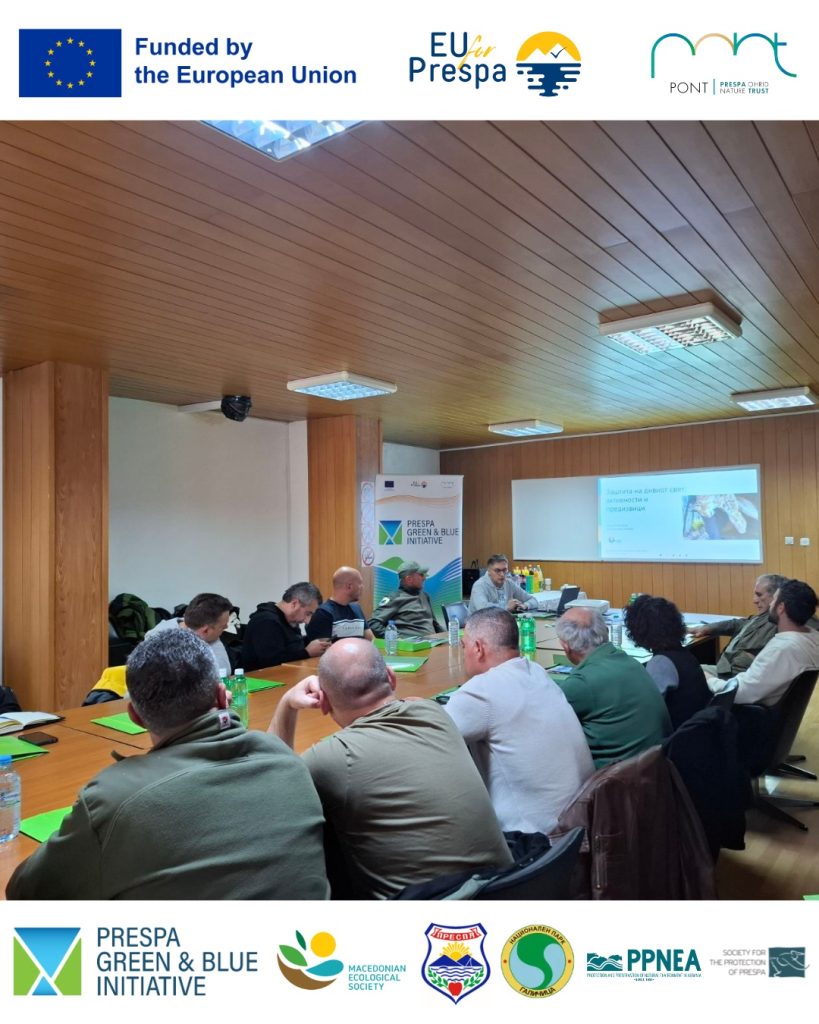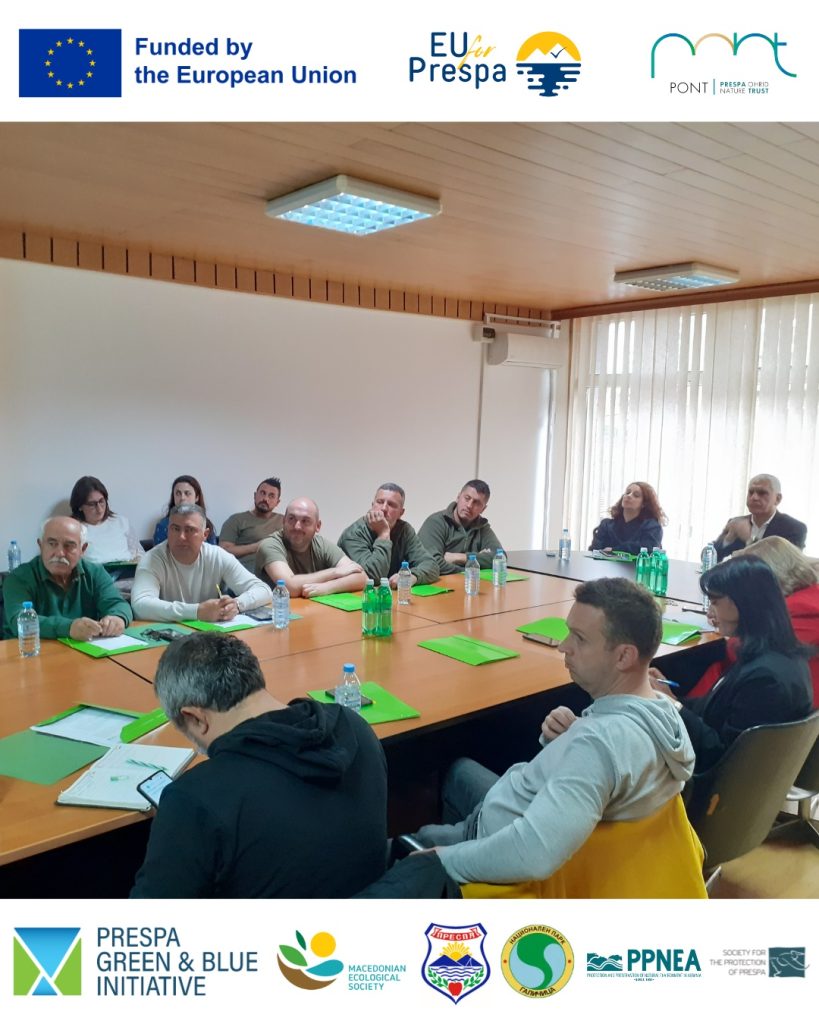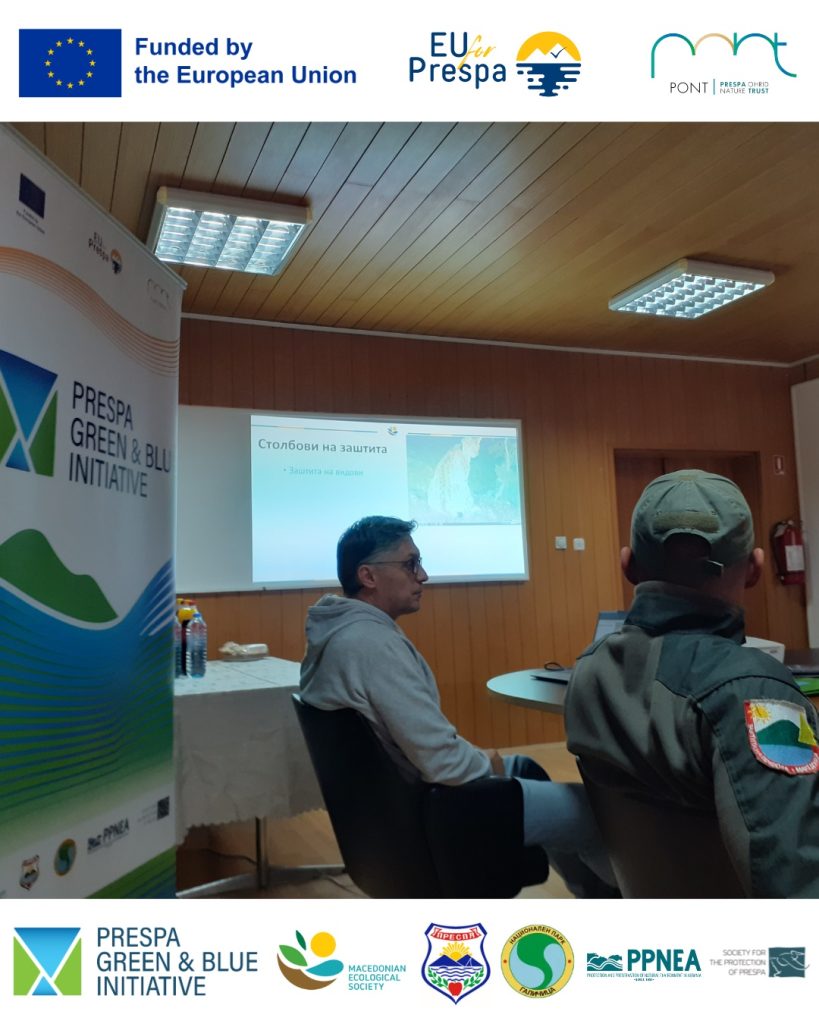Today, in the Small Hall of the Municipality of Resen, we held a roundtable on the topic “Large Mammals in Prespa: Status, Challenges, and the Role of the Community in Their Protection,” attended by representatives from the Macedonian Ecological Society, the Municipality of Resen, the “Ezerani” Nature Park, Galichica National Park, Public Enterprise National Forests, UNDP, representatives of local hunting associations, lawyers, and other stakeholders.

The discussion explored the role of protected areas, hunting associations, and the wider community in monitoring and protecting wildlife and large mammals in the Prespa region. Particular emphasis was placed on the need for joint action and coordination among institutions, organizations, and citizens in order to preserve biological diversity and develop sustainable practices in managing Prespa’s natural resources.
In this context, participants opened several topics and questions, including the need to install better traffic signage on road sections where frequent movement of wild animals has been recorded; the need to increase the use of cameras and camera traps for monitoring large mammals in protected areas and in hunting grounds across Prespa; the need to develop an integrated system for data exchange related to biodiversity in the region; as well as the need for more activities aimed at raising public awareness and addressing issues related to poaching.


The roundtable was carried out within the project “Prespa Green & Blue Initiative: Empowering Conservation through Research, Education and Communication” funded by the European Union under the programme “EU for Prespa” and co-funded by the Prespa-Ohrid Nature Trust (PONT). Project implementation partners are the Macedonian Ecological Society, the Municipality of Resen, Galichica National Park, the Society for the Protection of Prespa (SPP) from the Republic of Greece, and the Protection and Preservation of Natural Environment in Albania (PPNEA) from the Republic of Albania. The implementation of project activities is supported by the Ministry of Environment and Spatial Planning of the Republic of North Macedonia and Pelister National Park.

